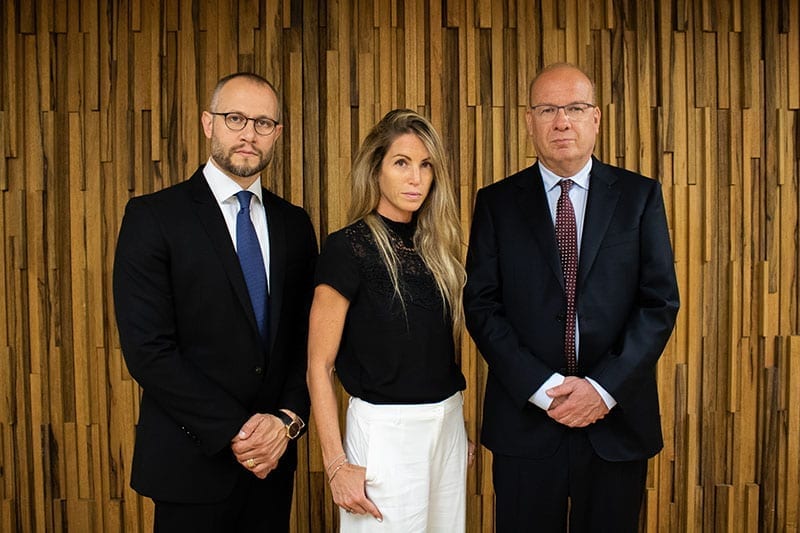No products in the cart.
The International Association of Jewish Lawyers and Jurists submitted (26.6.18) to the Constitutional Court of Poland its position against the “Polish Memory Law”

The Polish Memory Law, which was approved by the Polish Parliament in January 2018 allows for criminal prosecution of anyone in Poland and abroad who reveals the historical truth about some Polish nationals who contributed to the extermination of their Jewish neighbors by Nazis during World War II. The Constitutional Court of Poland is the last resort standing between authorization of Memory Law. “The imposition of such criminal restrictions on freedom of expression not only violates constitutional and international law’s standards but also harms Poland itself and its relations with the Jewish people” said Adv. Meir Linzen, the organization’s President.
Today, 26 of June, the International Association of Jewish Lawyers and Jurists (IJL) submitted to the Polish Constitutional Court an amicus brief detailing its objection to the January 2018, amendment to the Act on the Institute of National Remembrance, known as the “Polish Denial Memory Law”.
IJL which unites thousands of Jewish lawyers and jurists from around the world, submitted the amicus brief as a “Friend of the Court” (a process that allows one who is not a party to the case to join it, thus assisting the court in its decision) in light of its long-standing experience and involvement in protecting human rights and counteracting anti-Semitism worldwide. IJL aims to emphasize to the Constitutional Court in Poland the serious legal problems created by the amendment, as well as concerns with its implications.
Adv. Meir Linzen, President of the IJL said, “The organization recognizes that Poles were the victims of the Nazi horror regime, after Poland ceased to exist as a state, and were under Nazi occupation since the beginning of World War II. The organization acknowledges and is grateful for the Poles who risked their lives in helping to save Jews during the Holocaust. That being said, it is impossible to ignore the fact that some Poles assisted the Nazis in their actions to exterminate the Jewish people, and there is no place to impose restrictions on freedom of expression regarding this sensitive and painful issue, which should be the subject of free and unlimited public discourse and academic research. The imposition of such criminal restrictions not only violates freedom of expression but ultimately harms Poland itself and its relations with the Jewish people”.
Adv. Calev Myers Vice President of the IJL added: I am empathetic with the fact that, apparently, because of the location of Auschwitz, the Polish people feel that they receive too much perceived responsibility for the Holocaust regardless of the fact that the nation of Poland itself was also a victim of Nazi atrocities. I am also aware of the fact that many righteous Gentile Poles protected the lives of Jews during the Holocaust. However, I strongly believe that the way to resolve any imbalance of blame for the Holocaust is through positive measures – by researching, documenting and commemorating the lives of Polish heroes who resisted the Third Reich and the Holocaust – rather than by advancing draconic laws which do not comply with international standards of freedom of expression and freedom of journalism.
The Memory Law, the legislation of which caused a worldwide uproar, states that anyone who contrary to the facts claims that the Polish nation is responsible for crimes committed by the Nazis during the II World War will be committing a crime. The amendment is particularly stringent because it states that the prohibition on raising such claims applies also to foreign citizens outside the borders of Poland, regardless of the law in the country in which the statement was made. This means that even someone in Israel or in the United States who claims some Polish shmalzowniks responsibility for the crimes of the Holocaust could face criminal charges in Poland.
According to the IJL’s legal position, the amendment severely and disproportionately violates the freedom of expression protected by international and European treaties (to which Poland is a party), is incompatible with the provisions of the Polish Constitution itself that protects freedom of expression and freedom of the press – and has already caused increase in anti-Semitism in Poland. There is also concern that the amendment will cause a chilling effect when it comes to the study of the Holocaust, since researchers will be cautious in their statements and afraid to publish their research.
In this situation, the IJL sees itself as obligated to intervene in the process and to present its position to the Constitutional Court, particularly because of the fact that members of the organization include lawyers and jurists from Poland or descendants of Polish Jews who survived the Holocaust.
The Constitutional Court has yet to set a date for hearing this matter, but that is expected to take place in the coming months.
“Polish Memory Law” (English translation of the relevant sections of the Law)

